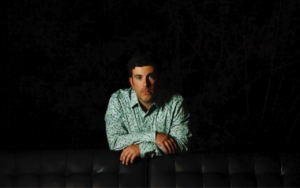At last week’s Grammy Awards, Kanye West (once again) stepped onstage in mock-protest over the fact that Beyoncé didn’t win Album of the Year. Beck did — for his somber, atmospheric folk album Morning Phase.
In an interview after the ceremony, Kanye said: “Beck needs to respect artistry, and he should have given his award to Beyoncé.”
My Facebook feed blew up, with many of my friends expressing a viewpoint along these lines: “Beck is the TRUE artist. He plays a dozen instruments and writes all his own songs! Beyoncé just sings, and all her songs are written by a team.”
I don’t know if this is an accurate summary of either artists’ creative process, but I kept wondering: why is one method “truer” than another? Both artists are incredibly talented, and (if we can momentarily get over the fact that all this fuss is over a little trophy given for an album subjectively assessed as “the best”) both artists might be equally deserving of that award.
Why do we hold up the idea of the lone genius and disparage “art by committee?” (And I’m guilty of this prejudice myself). The distinction, to me, seems like it should only be relevant when trying to understand the process by which a work was created. It has nothing to do with the quality of the final product, right?
But even Monty Del Monte (a songwriter who used Fiverr to collaborate with musicians around the world on the arrangement, production, and mixing of one of his songs) mythologizes the vision of the Solitary Artist.
But of course, there’s one thing missing: authenticity.
Art is about self-expression. It would be hard for me to call “Throw Me Out To Sea” an authentic act of self-expression because… well… it was outsourced to other people! It’s inherently not completely self-expressed It’s Mirko-expressed; it’s Matt-expressed.
Let’s take this notion one step further and imagine that I actually had no musical abilities at all. What if I hired a songwriter and a vocalist on Fiverr before I went through the whole process, merely acting as a facilitator along the way? Would you think of me as an artist then when the song is completely outsourced, when there was no self-expression at all?
As it turns out, many great musicians as well as artists, writers, and entrepreneurs usually start out doing everything themselves, micromanaging every last detail to achieve their vision. But as their brands develop, they need to delegate and outsource to scale.
Andy Warhol employed an army of artists to produce his famous prints at The Factory, Tom Clancy died years ago but ghost writers continue to publish new books under his name, Larry Page doesn’t write code for Google Search anymore (though I heard Mark Zuckerburg still codes occasionally at Facebook), and DJ superstar Tiesto is thought to be one of many DJs utilizing ghost producers in the industry.
No, not even The Bey writes her own music.
Over time, artists become more like marketing vehicles and project managers of bodies of work created by others—kind of like I was in creating “Throw Me Out To Sea.” In fact, the process I went through is actually not much different than how a lot of professional music is created today.
Considering this, it seems as though the fundamental difference between good artists and great artists is the ability to resist the dilution of authenticity and express oneself through collaborators throughout this process.
What do you think makes a piece of music authentic? I’m no linguist, but I bet that word is linked with author and authority — which maybe explains why we think of the sole creator as a purer, more powerful artist. And “collaborator?” You’re either a great team player or betraying your own people by helping an occupying power.
But almost all musicians collaborate to some extent — in performance, mixing, production, writing, and more. So what’s wrong with working well with others?
Where do YOu draw the line between creative teamwork and mob rule? Let me know in the comments below.
[hana-code-insert name=’newsletter-get-music-promotion’ /]
[Picture of tug-o-war from Shutterstock.]

